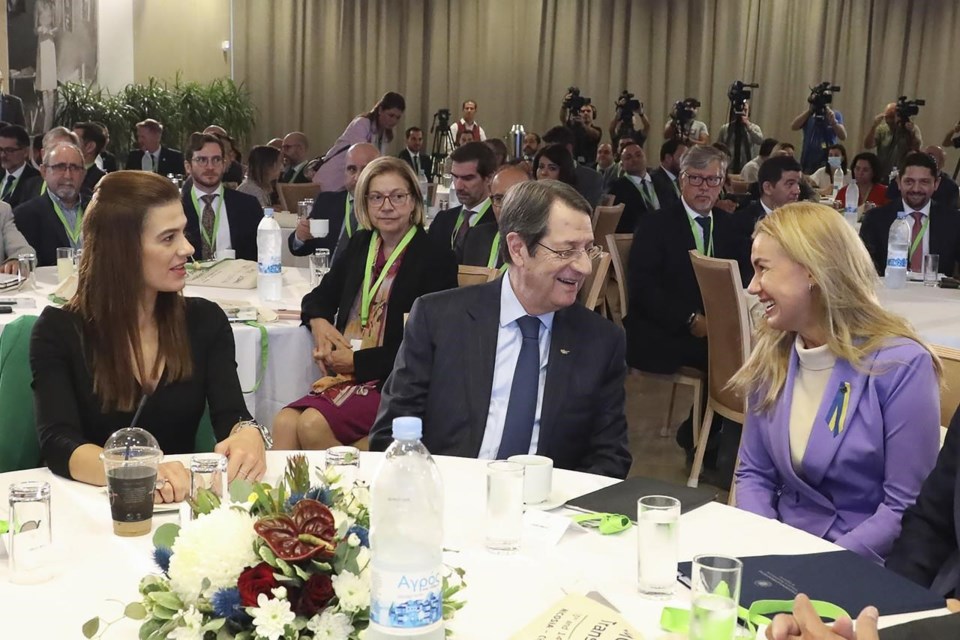NICOSIA, Cyprus (AP) — Natural gas from undersea deposits in the eastern Mediterranean can help replace Russia’s diminished supply of the fossil fuel to Europe as the continent also looks to make a quick transition to renewable energy, the European Union’s energy commissioner said Friday.
Commissioner Kadri Simson told the East Mediterranean Gas Forum conference in the Cypriot capital, Nicosia, that the region can play an increasingly important role as a short- to medium-term supplier of gas.
She pointed to a June deal for Israel to send more gas to EU countries through Egypt, which has facilities to liquefy it for export by sea.
The EU has already been successful in recent months in weaning itself off Russian gas, replacing 43 billion cubic meters (1.5 trillion cubic feet) of Russian gas by end of August with 45 billion cubic meters (1.56 trillion cubic feet) of liquefied natural gas and pipeline supplies.
But the commissioner said the only lasting solution to the EU’s conundrum amid the energy crunch brought on by Russia’s invasion of Ukraine is a speedy transition to renewables.
“Our reliable and trusted energy partners in the Eastern Mediterranean and beyond will be relevant to help Europe to replace every last molecule of Russian gas to achieve a more resilient power system and a true Energy Union,” Simson said.
Simson said the Mediterranean region has a high potential to generate renewable hydrogen and that the EU has accelerated efforts to add 22 million tons of hydrogen to its energy mix by 2030.
She said negotiations with Cairo on hydrogen generation are being finalized ahead of the United Nations Climate Change Conference in Egypt next month.
Hydrogen can be generated by using renewable electricity to extract it from water.
Simson said the EU would prefer not to put a price cap on gas in order to lower burgeoning energy prices for European consumers, “but rather negotiate with our reliable partners acceptable solutions for both sides.”
Cyprus President Nicos Anastasiades also hailed the start of work to build a 2,000-megawatt undersea electricity cable that will link the power grids of Israel, Cyprus and Greece.
The “EuroAsia Interconnector” is touted as the world’s longest and deepest subsea electricity cable, at 1,208 km (750 miles) and 3,000 m (1.9 miles) respectively.
The cable will cost roughly 1.6 billion euros ($1.56 billion) with the EU providing a little under half of that in funding.
Anastasiades said Cyprus can contribute excess renewable energy through the cable ranging from 120 Gigawatt hours at the end of 2027 to 1,000 in 2030 and over 1,800 in 2033.
The East Mediterranean Gas Forum was established three years ago by Greece, Egypt, Italy, Israel, Cyprus, the Palestinian Authority and Jordan as a vehicle to promote energy cooperation.
Menelaos Hadjicostis, The Associated Press




